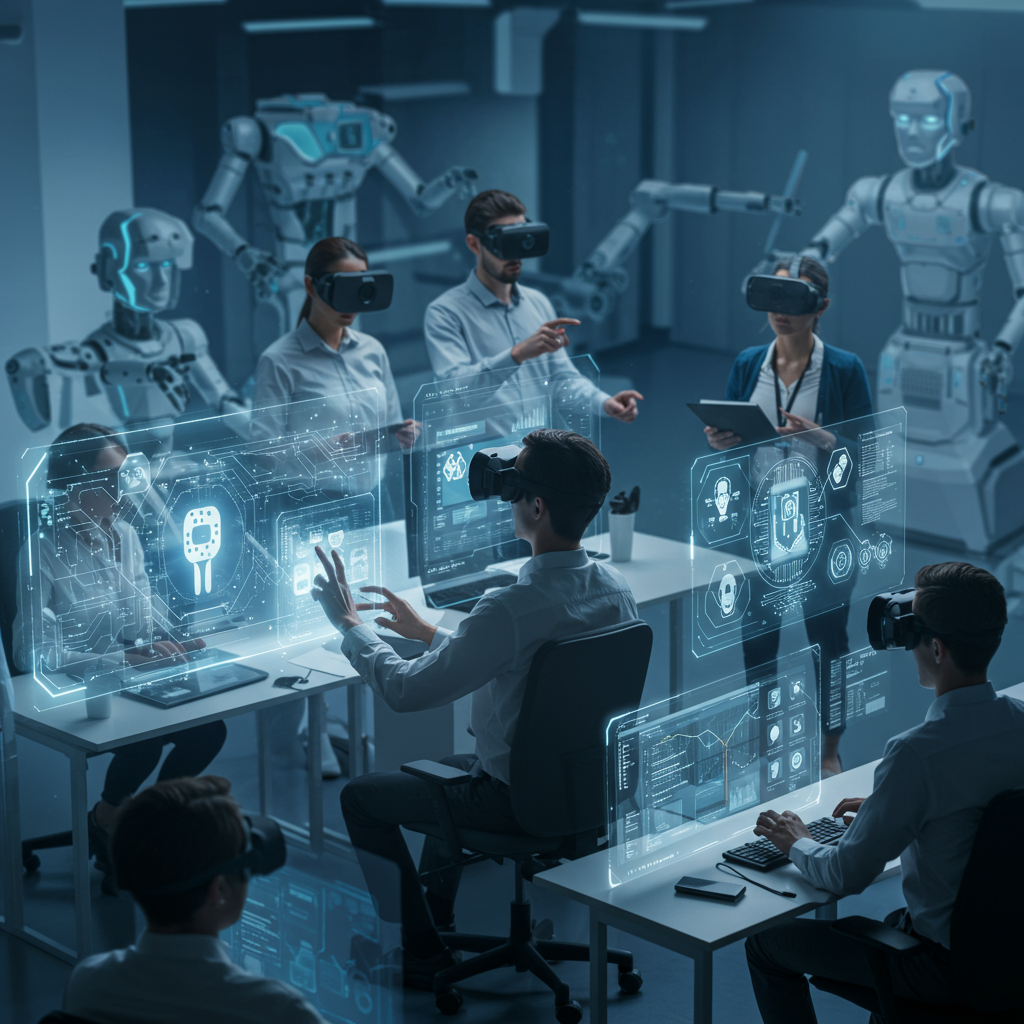# Training Your Workforce for an AI-Integrated Future
The rise of artificial intelligence (AI) is no longer a futuristic fantasy; it’s reshaping industries at an unprecedented pace. For businesses to thrive in this new landscape, it’s crucial to equip their workforce with the skills needed to navigate and leverage AI effectively. Ignoring this imperative isn’t just short-sighted; it’s a recipe for obsolescence. This post will outline key strategies for training your workforce and preparing your company for an AI-integrated future. Outshined.IO understands the urgency of this transformation and is here to guide you through the process.
Upskilling Your Existing Employees: Focusing on AI Literacy
The first step isn’t about replacing your employees but augmenting their abilities. AI literacy—a foundational understanding of AI’s capabilities, limitations, and ethical implications—is paramount. This includes:
* Understanding AI concepts: Employees need a grasp of basic AI principles, including machine learning, deep learning, and natural language processing. This can be achieved through online courses, workshops, or internal training programs. Consider platforms like Coursera, edX, and Udacity, which offer various AI-related courses tailored for different skill levels.
* Data literacy: AI relies heavily on data. Your employees need to understand how data is collected, analyzed, and used to inform AI-driven decisions. Training should cover data cleaning, interpretation, and the responsible handling of sensitive information.
* Ethical considerations: AI raises ethical questions about bias, fairness, and transparency. Training should emphasize the importance of responsible AI development and deployment, ensuring ethical guidelines are followed in all AI-related activities. This also encompasses data privacy and security.
Developing Specialized AI Skills: Preparing for the Future of Work
Beyond basic AI literacy, some roles will require more specialized skills. Identify areas where AI can significantly impact your business and then invest in training programs that equip employees with the necessary expertise. This might involve:
* AI-specific roles: Consider creating or upskilling existing roles to focus on AI implementation, maintenance, and optimization. This may involve data scientists, AI engineers, machine learning specialists, or AI ethicists.
* AI-assisted skill development: Many roles will be enhanced by AI tools. For example, marketing professionals can utilize AI-powered marketing automation tools, while customer service representatives can leverage AI-powered chatbots. Training should focus on effectively using these tools to increase efficiency and productivity.
* Continuous learning initiatives: The field of AI is constantly evolving. Encourage continuous learning through subscriptions to AI publications, attendance at industry conferences, and participation in online communities. Invest in ongoing professional development to ensure employees remain at the forefront of this rapidly changing field.
Implementing a Successful AI Training Program: A Practical Approach
A successful AI training program isn’t simply a series of lectures; it’s a strategic initiative that requires careful planning and execution. Consider these key factors:
* Needs assessment: Identify the specific AI skills needed across different departments and roles within your organization.
* Curriculum development: Design training programs that are relevant, engaging, and tailored to the specific needs of your employees. Use a blended learning approach combining online courses, workshops, and hands-on projects.
* Mentorship and coaching: Pair experienced employees with those undergoing AI training to provide support and guidance.
* Performance measurement: Track the effectiveness of your training program by assessing employee proficiency in AI-related skills and the impact on business outcomes. Regular feedback is crucial for refining the program.
In conclusion, training your workforce for an AI-integrated future is not a luxury, but a necessity for survival and growth. By focusing on AI literacy, developing specialized skills, and implementing a comprehensive training program, your business can harness the transformative power of AI while maintaining a skilled and adaptable workforce. Outshined.IO is committed to helping businesses navigate this transition. Let us help you shine.

